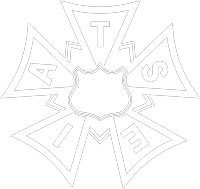
Judge Neil Gorsuch was nominated to fill the current vacancy on the Supreme Court. Soon the U.S. Senate will hold hearings on his nomination. In taking a deeper look at Gorsuch's record, there are quite a few rulings and writings that should concern working people. As a private lawyer and as a judge, he has aligned himself with the interests of Big Business, not the concerns of working families. He has ruled against protecting the health and safety of workers, made it harder to have discrimination-free workplaces and argued for corporations’ misconduct to be protected from correction by investors and consumers. Here are a few examples:
1. An excavator operator died on the job after being electrocuted by an overhead power line at a surface mine site. The Occupational Safety and Health Review Commission investigated, finding a serious violation of safety regulations and imposed on the employer a $5,550 fine, which the employer appealed. While the majority of the court upheld the commission's findings against the employer, Gorsuch dissented, contending that this case was yet another example of administrative agencies wielding "remarkable powers" and "penalizing" the company even when no evidence existed. (Compass Environmental Inc. v. OSHRC, 10th Circuit, 2011)
2. In NLRB v. Community Health Services, the majority deferred to the expertise of the National Labor Relations Board, ruling that workers' interim earnings should be disregarded when calculating back pay awards where a hospital unlawfully reduced work hours. The NLRB reasoned that, on balance, workers who take on additional outside jobs should retain the benefit of their "extra effort," not "recalcitrant" employers. Gorsuch disagreed and dissented, observing that the NLRB's "statutory charge isn't to promote full employment....It's not some sort of reincarnation of the Works Progress Administration." (NLRB v. Community Health Services Inc., 10th Circuit, 2016)
3. In Strickland v. UPS, the court majority found that a woman driver fired by her company had sufficient evidence to challenge that firing based on sex discrimination. The trucker's evidence included co-workers who testified that she was treated differently than her male co-workers and that only she regularly had to attend individual meetings and counseling sessions on sales performance. Gorsuch, however, stridently dissented, finding such evidence "absent." (Strickland v. UPS, 10th Circuit, 2009)
4. In the TransAm Trucking case, the court majority deferred to the U.S. Department of Labor, agreeing that under the Surface Transportation Assistance Act a shipping company improperly fired a trucker when out of safety concerns he refused to drag a trailer with frozen brakes. Gorsuch dissented, taking issue with the department's findings that the statutory phrase "refuse to operate" should be interpreted within its statutory context of promoting health and safety. Gorsuch instead looked to a dictionary for the plain meaning of the phrase and queried: "What, under the sun, at least at some level of generality, doesn't relate to ‘health and safety'?" (TransAm Trucking Inc. v. Administrative Review Board, U.S. Department of Labor, 10th Circuit, 2016)
5. In a 2005 paper, Gorsuch argued that class actions challenging securities fraud should be made more difficult for investors, since protecting corporations from the risk of litigation far outbalanced the concerns of investors who may have been swindled. (Settlements in Securities Fraud Class Actions: Improving Investor Protection, Washington Legal Foundation, 2005)
6. In private practice, Gorsuch filed an amicus brief, again opposing class actions in securities litigation as burdensome on business, on behalf of the U.S. Chamber of Commerce, an organization that represents the interests of Big Business and seeks to undermine worker protections. (Brief of Amicus Curiae for the United States Chamber of Commerce, Dura Pharm. Inc. v. Broudo, 2005). In a 2005 article discussing the Broudo case, Gorsuch attacked plaintiffs' lawyers who represented investors in securities class actions as seeking "free ride[s] to fast riches." ("No Loss, No Gain," Legal Times, Jan. 31, 2005)
7. In a 2005 opinion-editorial, Gorsuch condemned "American liberals" for an "overweening addiction" to constitutional litigation. While he concluded that liberals should "kick" that litigation addiction and try to "win elections rather than lawsuits," he directed criticism only at "the Left," not the Right and conservative legal advocacy groups. (Neil Gorsuch, "Liberals 'N' Lawsuits," National Review Online, Feb. 7, 2005)
